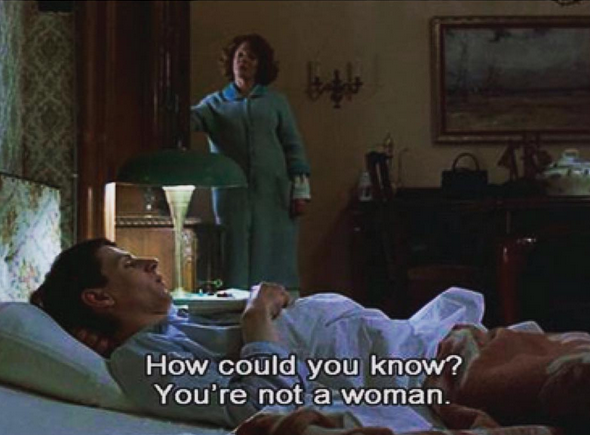Chantal Akerman, June 6, 1950 — October 2015

- “For the first three hours or so, the only strong indication we get of what’s really going on is the business-like transaction of a single bill as Jeanne and her customer stand by the door. Otherwise, we get a view of a closed bedroom door, and a darkened hallway. Before bed one night, Sylvain asks his mother if she would ever remarry. Jeanne responds pragmatically: “No. Get used to someone else?” But Sylvain has something grander in mind, offering, “If I were a woman, I could never make love with someone I wasn’t deeply in love with.” Jeanne is skeptical. “But how could you know?” she poses. “You’re not a woman.”
- “At 25, she made her groundbreaking 1975 film, Jeanne Dielman, 23 Quai du Commerce, 1080 Bruxelles, which follows a housewife in real time over the course of more than three hours as she prepares food, does chores, and receives clients paying for sex. The minimalist repetition builds up quietly to a traumatic climax…Directors like Todd Haynes, Sally Potter and Michael Haneke have credited Ms. Akerman as a major influence. J. Hoberman, a former film critic for The Village Voice, likened her to Mr. Godard and to the German director Rainer Werner Fassbinder, once calling her “arguably the most important European director of her generation.”
- “Frequently imitated and referenced, but never equaled, Akerman’s breakthrough remains the big screen’s definitive study of how the everyday mundane can mount into a sense of doom, and one of its most original exercises in space and time. Often characterized as a minimalist, Akerman was fascinated with long takes, sparse spaces (hotel rooms being a favorite), and meaningful repetition. That, however, doesn’t really encompass the scope of the filmmaker’s work, which ranged from documentaries to fiction features with stars and from adaptations of Joseph Conrad (Alamayer’s Folly) and Marcel Proust (The Captive) to a pastel-toned musical set in a shopping mall (Golden Eighties).”
- “Maybe it is disingenuous to celebrate these solitary moments and not the tremendous body of work at large? But Akerman understood that an unflagging dedication to minutiae — finding a focus, then focusing some more — fuelled her profound postulations about life, love, people, relationships, the whole bit. She was, absolutely no question, one of the greatest film-makers who ever lived. And the light that shines outside of Jeanne’s window is a symbol of Akerman’s work, a reminder that someone looked at the world — and also saw it.”
This is Chantal Akerman’s brilliant first film, Saute Ma Ville, which she self-financed and made when she was 18. https://t.co/WwGIccUGC7
— Lindsay Zoladz (@lindsayzoladz) October 6, 2015